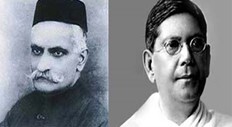The Swarajya Party: A New Approach to India's Struggle for Independence
History Indian HistoryPosted by NewAdmin on 2025-02-05 08:52:47 |
Share: Facebook | Twitter | Whatsapp | Linkedin Visits: 27

The Swarajya Party was founded in 1923 by Chittaranjan Das and Motilal Nehru as a result of a split within the Indian National Congress. The creation of the party marked a significant shift in the Indian freedom struggle, as it was born out of the dissatisfaction with the direction taken by Mahatma Gandhi's Non-Cooperation Movement. After the movement was called off in 1922 following the Chauri Chaura incident, many leaders, particularly from the more radical faction of the Congress, felt that the movement had not achieved its goals and that an alternative strategy was necessary to continue the fight for independence.
The Swarajya Party aimed to adopt a more pragmatic approach, seeking to work within the existing legislative framework under British rule. Chittaranjan Das and Motilal Nehru, who were both prominent leaders of the Congress, believed that by participating in the legislative councils established by the British government, Indians could gradually gain more control and influence over governance. They advocated for a policy of "constitutional agitation," which involved contesting elections to these councils, pushing for reforms, and exposing the ineffectiveness of the British colonial system from within.
The Swarajya Party focused on promoting self-government, or Swarajya, through constitutional means. They argued that participating in the legislative process would not only give the Indians a platform to demand reforms but also serve to mobilize public opinion against British rule. Their objective was to achieve greater political rights for Indians and build a foundation for eventual self-rule.
In the 1923 elections, the Swarajya Party won a significant number of seats in the legislative councils, particularly in Bengal and Uttar Pradesh. Their efforts were successful in drawing attention to the flaws of British policies and generating public awareness about the need for greater Indian participation in governance. However, despite their initial success, the party's influence began to wane in the late 1920s, as the political climate in India evolved and new leadership emerged within the Indian National Congress. Nonetheless, the Swarajya Party played an important role in shaping the discourse on Indian self-rule and remains an integral part of the history of India's struggle for independence.
Search
Categories
Recent News
- 'Culture Clash' in Adelaide: Racial Tensions Rise Over Park Usage
- Peace Talks in Abu Dhabi: A Glimmer of Hope Amidst War's Shadow
- Global Risks 2026: Navigating a Decade of Uncertainty
- Chaos in Parliament: PM Modi's Address Postponed Amid Opposition Uproar
- Turkish Airlines Flight Makes Emergency Landing in Kolkata
- Andhra Pradesh's Petrochemical Future: A Mega Project in the Making
- Delhi Welcomes Bharat Taxi: A Driver-Owned Ride-Hailing Revolution
- Empowering India's Youth: Free Coaching for a Brighter Future
Popular News
- Navigating IPO Market Dynamics Amid Volatility and Regulatory Changes
- Massive Worldwide Microsoft Outage Disrupts Multiple Sectors
- Panjapur Bus Stand to Reshape TNSTC Routes
- తెలుగుదేశం పార్టీ - పేదరికాన్ని నిర్మూలించడంలో వాగ్దానం
- Universities Embrace Remote Learning Technologies Amidst Ongoing Pandemic